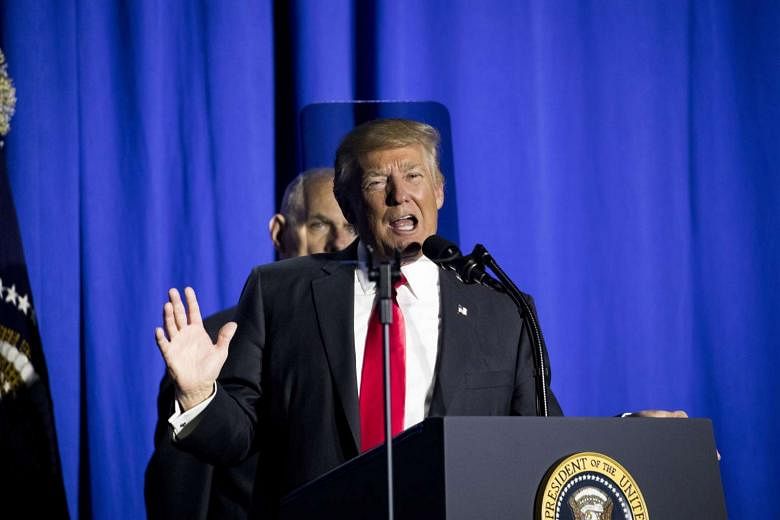Stock markets have been cheering US President Donald Trump's economic plans as being good for business, but economists taking the long view are more sceptical.
Mr Trump's pledges to penalise US companies that move jobs abroad, spend big on infrastructure and curb immigration have been cheered by supporters and financial investors, but might result in long-term pain for both the United States and global economies, they said.
Mr Trump's latest move was to revive two major oil pipeline construction projects that had been blocked.
He signed an executive order on Tuesday to curb environmental regulations that slow building projects, calling such laws "incredibly cumbersome, long, horrible".
Stock markets cheered these moves, with Wall Street hitting a new record. However, RHB economist Thomas Lam said the joy might be premature.
"Although headlines have broadly emphasised pro-business deals and plans under the Trump leadership, it is important to dissect the details behind the proposed changes, and also take into account the eventual redistribution of costs to the broader economy," he said.
Standard Chartered Bank's chief economist for global research Marios Maratheftis said the economic lift expected from Mr Trump's infrastructure-boosting plans could be offset by higher interest rates.
"The Federal Reserve is clearly communicating its intentions to hike interest rates. And with higher interest rates, the US dollar is likely to keep appreciating," Mr Maratheftis said.
Higher rates make credit more costly, while a stronger currency makes goods and services more expensive, resulting in reduced spending and investment.
Bank of Singapore chief economist Richard Jerram said Mr Trump's plan for a border tax on US companies that move jobs abroad would compound the problem.
"It will reduce foreign competition, but it will also hurt US firms' global businesses and push up domestic costs, as imports cost more and labour will have more bargaining power," he noted.
United Overseas Bank economist Alvin Liew added that Mr Trump's vow to tighten immigration - a popular cause among his supporters - could also backfire.
He said: "(This could have) widespread negative impact on the operations of US businesses, from the labour-intensive service sectors such as food and beverage to the tech companies, which may require a lot of temporary and highly skilled workers."
Mr Trump's moves could also have spillover effects on the rest of the world, including in Singapore.
Mr Maratheftis said that the main risk to export-dependent Singapore is the new President's protectionist stance, which could dampen global trade.
Mr Jerram said: "If there is a big tax cut, then the US economy could threaten to overheat, which would push the Federal Reserve to raise interest rates more quickly than currently planned. That could affect the exchange rate and interest rates in the region."
Still, there is a silver lining. Mr Liew noted that US Democrats are championing a US$1 trillion (S$1.4 trillion) infrastructure plan that they claim will create 15 million jobs, and have asked Mr Trump to work with them to pass it.
"This is an opportunity for Asian businesses to take advantage of building projects in the US or invest in the US construction sector."


